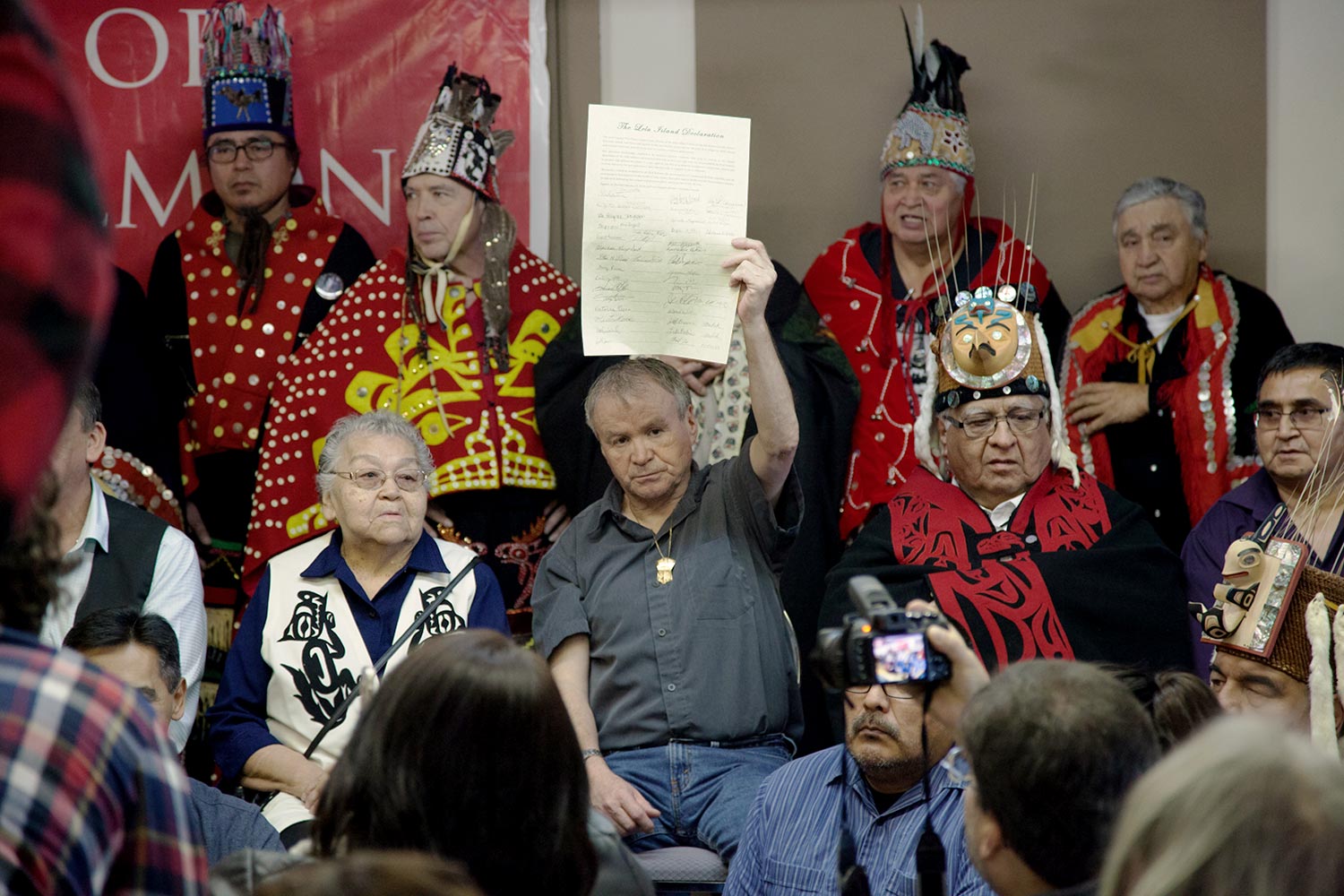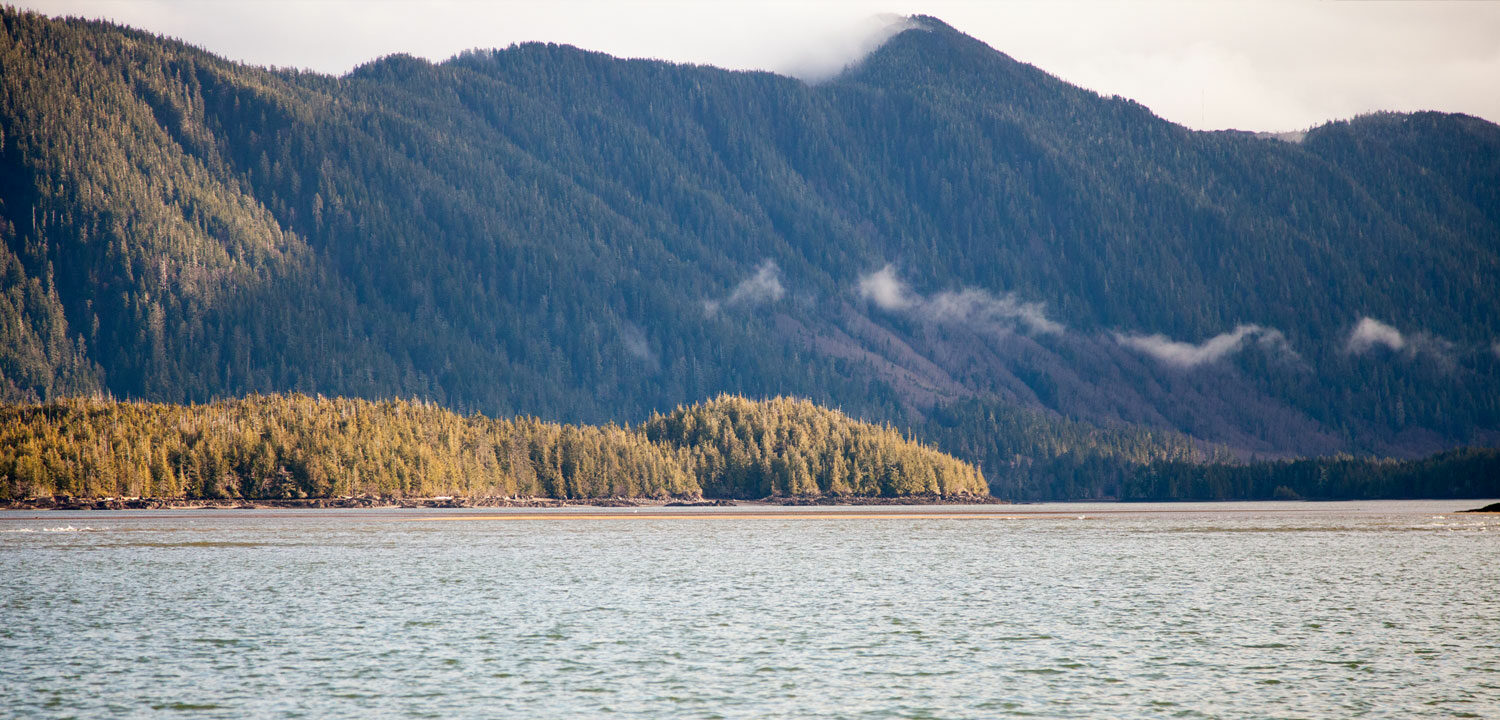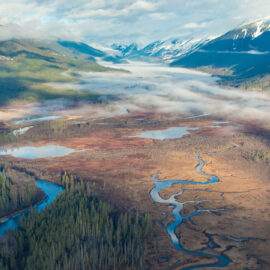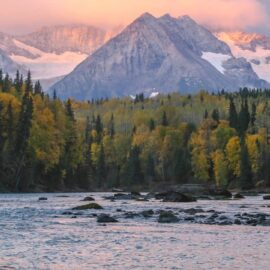A port authority moratorium on development provides protection to key sites around Lelu Island.
The Prince Rupert Port Authority in northern British Columbia took the first step toward restricting development on sensitive salmon habitat around Lelu Island at the mouth of the Skeena River. Earlier this month, the port put a moratorium on development on Flora Bank and two nearby shallow banks nearby – areas used by more than 50 salmon populations as they stage to enter the ocean.
SkeenaWild’s Greg Knox, our partner in northern BC, acknowledged the port’s move as an important step toward getting comprehensive protections in the estuary.
“The port is showing leadership in protecting the critical salmon habitat around Flora Bank and part of Lelu Island,” Knox says. “But we know that salmon use the entire area around Lelu Island. For long-term protection for the area, there are some other sensitive areas around Lelu Island that need to be included.”
The wooded island was slated to be developed as a natural gas liquefaction and export facility by Malaysian giant Petronas and several other major international players. But the controversial $36 billion Pacific Northwest LNG project was scrapped in July 2017, after pressure from certain tribes of the Lax Kw’alaams, other Skeena First Nations leadership, and local salmon advocates such as SkeenaWild. At the time there were four separate legal challenges pending against the development, which was also beset by poor natural gas prices. After Petronas cancelled their Lelu Island project, the company made a major investment in the nearby LNG Canada project.

The port stated it will be open to public input to guide responsible development in the future, but reiterated that it wanted to keep Lelu Island itself open for industrial development. That leaves some issues around the island still unresolved: members of the Lax Kw’alaams Nation raised a totem pole on the island, which they claim as traditional territory and have been using as a site for cultural education and celebrations.
Still, tribal leaders were cautiously optimistic about the port’s latest announcement. And First Nations and salmon advocates will work to make sure concerns about the island are fully addressed.
“We recognize that development can, should and will happened around Prince Rupert, but there are other places to do it,” Knox says. “Comprehensive planning with the port authority will sort out where and how responsible development should take place.”



